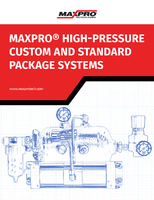ASTM Standards address laboratory accreditation issues.
Press Release Summary:
Online compilation from ASTM International gives users access to 15 globally recognized standards - 12 ASTM, 3 ANSI/ISO/IEC - on laboratory and inspection agency accreditation. Only available online, ASTM-specific standards address determining specifications conformance; proficiency test program results analysis; accredited laboratory surveillance; testing/QA agency evaluation; proficiency testing; and LIMS validation.
Original Press Release:
ASTM Standards for Laboratory Accreditation and Personnel Certification
W. CONSHOHOCKEN, Pa., 17 March 2009-A new online compilation from ASTM International gives users instant access to 15 of the latest ASTM and ANSI/ISO/IEC standards on laboratory and inspection agency accreditation. These globally-recognized standards assure quality and technical competence, and provide a benchmark for maintaining the high performance of your laboratory.
The twelve ASTM International standards cover: data to determine conformance with specifications; analysis and interpretation of proficiency test program results; surveillance of accredited laboratories; evaluation of agencies involved in testing and quality assurance; proficiency testing by interlaboratory comparisons; and validation of laboratory information management systems.
The three ANSI/ISO/IEC standards included in the compilation cover general requirements for accreditation bodies accrediting conformity assessment bodies; bodies operating certification of persons; and competence of testing and calibration laboratories.
ASTM Standards for Laboratory Accreditation and Personnel Certification (stock # CERTIFY09) is only available online. A one-year subscription is $249. To order, contact ASTM Customer Service (phone: 610-832-9585; fax: 610-832-9555; service@astm.org) or visit www.astm.org.
Established in 1898, ASTM International is one of the largest international standards development and delivery systems in the world. ASTM International meets the World Trade Organization (WTO) principles for the development of international standards: coherence, consensus, development dimension, effectiveness, impartiality, openness, relevance and transparency. ASTM standards are accepted and used in research and development, product testing, quality systems and commercial transactions around the globe.




